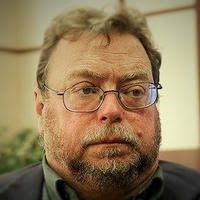French anti-terrorism judge Jean-Louis Bruguiere is expected to issue international arrest warrants for nine Rwandan government officials close to the pro-U.S. Rwandan President Paul Kagame for the 1994 missile attack on the presidential aircraft that killed the Rwandan and Burundian Presidents, members of their cabinets and staff, and the French crew.
Although Bruguiere also said Kagame should be brought to trial at the International Criminal Tribunal for Rwanda (ICTR) in Arusha, Tanzania on charges of ordering the attack on the aircraft, an act of international terrorism that resulted in the mostly Hutu on Tutsi genocide in Rwanda that led to the deaths of some 800,000 people. As a sitting head of state, Kagame has immunity from prosecution under French law, but he can be prosecuted by the ICTR under international law.
Kagame was trained by the US Army in 1990 and was a U.S. client when he executed the terrorist attack on the "Rwanda One" aircraft. Kagame has also been a frequent visitor to the Bush White House, a supporter of Bush's invasion and occupation of Iraq, and has become a celebrity among certain sectors of the human rights community, having attended several Washington, DC events sponsored by non-profit think tanks and even the Holocaust Museum.
Unbelievably, at a 2005 appearance at a Woodrow Wilson Center function chaired by Lee Hamilton, an official of the Holocaust Museum actually praised Kagame, now a wanted international terrorist, as a man of vision.
Members of the U.S. Defense Intelligence Agency (DIA), including their top operatives in Rwanda, Uganda, and the then-Zaire, were aware of the plans for the attack and actually helped train Kagame's Rwandan Patriotic Front (RPF) forces in the use of Soviet-made SAM-16 missiles captured by US forces during Operation Desert Storm in the attack on the aircraft.
Bruguiere's determination that Kagame and his US-supported forces were responsible for the missile attack on the aircraft mirror the conclusions found in two books written by this editor:
Genocide and Covert Operations in Africa 1993-1999 and
Jaded Tasks: Brass Plates, Black Ops & Big Oil.
The arrest warrants against Rwandan government officials include Rwandan Armed Forces Chief James Kaberebe (alias Kabare) and Army Chief of Staff Charles Kayonga. The editor has also
testified before the US Congress on official US backing for Kagame and America's role in the terrorist attack on Rwanda One.
The Bush administration's special ambassador for war crimes, Richard Prosper, intervened twice with the ICTR to prevent the testimony of this editor on the US involvement in Kagame's RPF attack on Rwanda One. One cancellation came from Arusha as the editor was en route to Dulles International Airport and after being inoculated against cholera and yellow fever and being on anti-malaria medication for two weeks.
A third invitation to Arusha, one cleared by Prosper and the Bush State Department, was issued only after the editor's personal safety could not be guaranteed by the United Nations authorities in Tanzania.
Under pressure from both the Clinton and Bush administrations, the ICTR has avoided prosecuting the perpetrators of the attack on the Rwandan presidential plane. Successive ICTR chief judges, including Louise Arbour of Canada and Carla Del Ponte of Switzerland, under pressure from Washington and London, have maintained their mandates did not include investigating the attack on the Rwanda One aircraft.
Del Ponte regretted that she left "unfinished business" in Arusha. That "unfinished business" clearly included investigating Kagame and the current US-backed Rwandan government.
It was clear then and remains clear now that the Bush administration did not want the issue of US support for an act of international terrorism over the skies of Kigali on April 6, 1994 to be brought up before an international tribunal by this editor or any other special or expert witnesses.
In fact, Prosper and chief UN prosecutor Hassan Bubacar Jallow of Gambia have been aided and abetted in their cover up of Kagame's crimes by US military Judge Advocate General lawyers seconded to the ICTR prosecutor's office in Arusha and on loan from the UN International Criminal Tribunal for Yugoslavia in The Hague.
The actions Judge Bruguiere in prosecuting a US-client state for terrorism, especially after considering the same judge successfully prosecuted Carlos the Jackal and Corsican terrorists and investigated Muammar Qaddafi and Zacarias Moussaoui, point to the fact that the US government can now be counted among the other state sponsors of global international terrorism.





